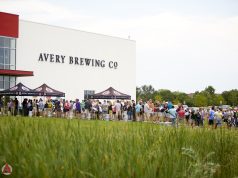
Boulder is known for its tremendous supply of both beer and organic food. But the combination of the two, organic beer, is not as easy to find as Boulder’s reputation would lead you to believe.
For one thing, organic beer costs significantly more to produce. The first allorganic brewery in Colorado, Boulder’s Asher Brewing, says it costs them 30 percent more for ingredients alone. But company founder Chris Asher feels it’s worth it for sustainability, environmental well-being and the beer drinker’s health.
Besides specific cleaning products and extra paperwork for tracking all of their raw materials, the brewing process is the same for organic beer, says Jules Masters, Asher Brewing Company’s “master of mischief and organizer of others.”
“We can produce bright, flavorful beer without filtration,” says Masters.
“As a result, you get to keep all the B vitamins and minerals that come naturally.”
In addition to the health and environmental concerns — and what some claim is a better taste — organic ingredients allow for a longer shelf life and a healthier life cycle for the yeast in beer.
So besides cost, why aren’t more breweries going organic?
For one, organic hops are a somewhat new presence in the organic beer scene. It wasn’t until January 2013 that the National Organic Standards Board required organic beer to have organic hops, since the product wasn’t readily available. Now, if you see a beer labeled “100 Percent Organic,” it only contains organically produced ingredients with no chemicals or pesticides used. A beer label with “Organic” means 95 percent of ingredients were organic and brewers proved that the remaining 5 percent were unavailable organic. Plus, any of the non-organic ingredients need to be included in the U.S. Department of Agriculture’s National List of Allowed and Prohibited Substances.
Despite the challenge, Asher isn’t the only Boulder brewery making organic beer. While not marketed as organic, Mountain Sun Pub & Brewery has produced beers with only organic ingredients. However, Brewmaster John Fiorilli says they don’t use the term “organic” for labeling since becoming Certified Organic is a “considerable process.”
“We encourage the use of not only organic but more importantly, local ingredients,” Fiorilli says.
Asher has to ship some of the organic ingredients in from Oregon and Washington, but uses local organic hops from nearby Niwot Farm for their Fresh Hop Pale Ale whenever possible. Mountain Sun also has gotten organic hops from local Colorado farms and organic grains from Colorado Malting Company.
While maltsters offer certified organic grain, there is nowhere near the variety available as non-organic grains, according to Fiorilli.
“Last year we made 93 unique beers, and maybe only 10 percent of these recipes could be made using 100 percent organic grains, as there just is not enough variety,” he says.
Despite the lack of a variety and limited ingredients coupled with a higher cost that some beer consumers might hesitate to pay, the organic beer market isn’t souring. With more and more organic breweries and organic beers popping up, there is definite room for growth.
Respond: [email protected]














